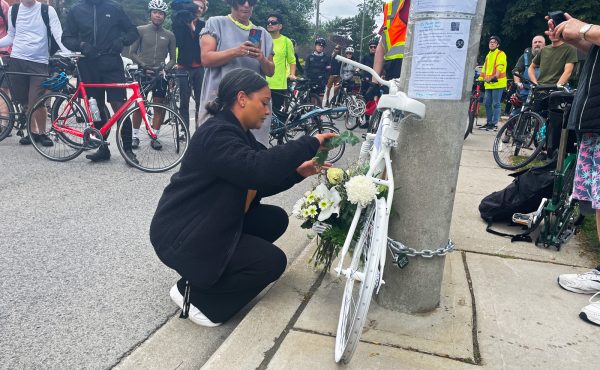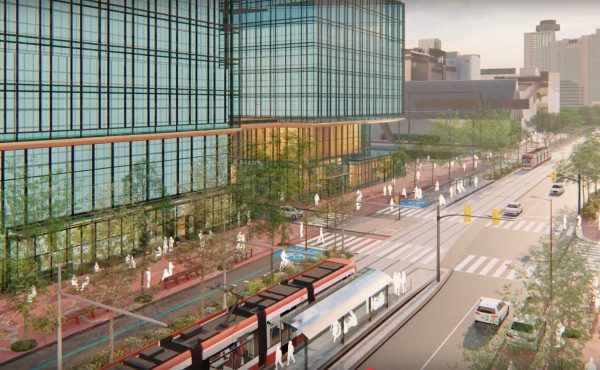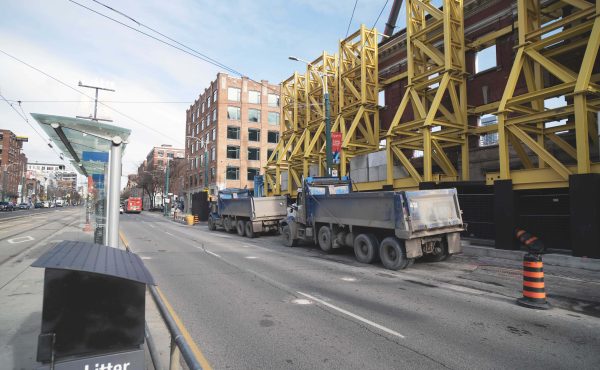
Jeff Gray writes in today’s Globe and Mail:
A controversial one-night city survey of the homeless is set to go ahead this week, despite opposition from some activists and a shortage of volunteers to walk the streets of suburban areas looking for homeless people. Most of the 1,700 volunteers for what the city calls its “street-needs assessment” have signed up to work downtown, or in the city’s shelters, for the Wednesday night survey. Iain De Jong, the director of the city’s Streets into Homes initiative, says officials could still use another 100 to 150 volunteers for the project, in order to cover the wide boulevards of the former cities of North York, Etobicoke and Scarborough.
Cathy Crowe of the Toronto Disaster Relief is opposed to this survey because her group already has a good estimate of the homeless (they deal with them daily) — she feels the numbers will be less than accurate because of the short duration of the survey and that the numbers will play right into the hands of right-wing councillors who see homelessness as a nuisance rather than a tragedy.
Slightly bothersome to me is the last line in this quote (italicized): “Teams of two or three volunteers, led by professionals who work with the homeless, will approach people who look homeless between 7 p.m. and 12 a.m. and ask them to participate in a five- or 10-minute survey. Those who do will receive a $5 fast-food voucher.” I recognize the ease of access fast food chains offer to the homeless, but wouldn’t a grocery store voucher be better suited (for healthy reasons)? Or am I expecting too much from the City on this?
Read the Globe article by clicking here.
Photo by Bouke Salverda




7 comments
People on the street who “look homeless”? It seems to me that this survey takes a narrow approach to a systemic problem. What about people who are one step away from homelessness (e.g. people who are couch-surfing, or families doubled-up in unfit apartments)? Just because you aren’t sleeping rough doesn’t mean you aren’t homeless.
Additionally, many homeless people reject the shelter system, calling it overcrowded and unsafe. The individuals in shelters represent only a part of the greater (and largely “invisible”) homeless population.
Demographic research is important, but such research is only relevant and valid to a certain degree: repeatedly (and, as Crowe suggests, unsuccessfully) counting and classifying people does nothing to improve living conditions for Toronto’s homeless.
I suppose the problem with a grocery store voucher is that they wouldn’t necessarily have access to kitchen facilities, and may not be able to carry food around with them. Even if you buy an apple, you still have to wash it before you eat it. Some grocery stores do sell like prepared salads and sandwiches, but I don’t know if they all do. It’s probably easier to get a substantial meal from a fast food outlet. If I were homeless, I’d rather have the fast food, although I can’t tell you if people who are currently homeless feel the same way.
Also disturbing about the fast-food incentive is the fact that those who don’t wish to participate will be left hungry.
If I was working the survey I would give them to everyone regardless.
There is some very interesting stuff on the Toronto Disaster Relief Committee website http://www.tdrc.net
I heard this guy from the Ontario Tenants Rights website http://www.ontariotenants.ca on a callin show and he said his biggest concern was that he had heard the survey did not include important questions such as “when did you last eat”.
homeless people should bw given a chance. they could me homeless for whatever reason! he cant judge them for they way they look dress or talk, some homeless people have good reasons for why they are homeless like, abusive families or being physical abused
some of us dont understand how lucky we are and what sort of life some of us have we should make the most of our lives and our school lives. this man looks very unhappy and very depressed with his life. most people who live in the streets fine themselves at the end of a cliff and feel there is nothing in this world for them and they end up dead in some ally way either stabbed,drunk themselves to dead or other things if i could i would give this man a chance give him a job or some money and somewhere to get cleaned up, thats all they want in a cahnce to put their lives back in order, so next time you walk past a homeless person just think to yourself. what if that was you and something went wrong in your life. JUST GIVE THEM A CHANCE!!
I’m know I’m really, really late on this but I just found this article by chance. I was a team leader for the street needs assessment and I think its important to clarify a few things. We approached everyone we saw and asked if they would complete the survey. This was the most accurate way to undertake the census. It wasn’t just my team but everyone. That was the way the assessment was to be done. The idea that volunteers were only supposed to ask people that looked homeless is rediculous and likely started by a group opposed to the assessment. My group interviewed around 300 people that night and only one or two were homeless. Another issue is the voucher.
The fast-food outlet that supplied the vouchers was the only one willing to invite people who may be homeless into their restaurant. Other businesses such as grocery stores, pharmacies etc. could have contributed but didn’t, likely because they didn’t want ‘those people’ in their stores.
Every effort was mode to ensure the statistical accuracy of the census but it is difficult, if not immpossible to calcluate the hidden homeless (ie. couch surfers etc.). The census aknowledged this.
And dispite accusations of this being for right wing purposes, everyone deserves be accounted for, dispite their personal finances or living situation. This information doesn’t have to be part of a diabolical right wing conspiracy but can actually be used to assess and address the needs of a specific segment of the population. I know that dispite the political intentions for the street needs assessment, that was the intention of those who designed and conducted the survey(the assessing and addressing part, not the right wing diabolical thing).
Clarification
What I meant by “despite the political intentions of the street needs assessment†was “despite the perceived political intentions”.